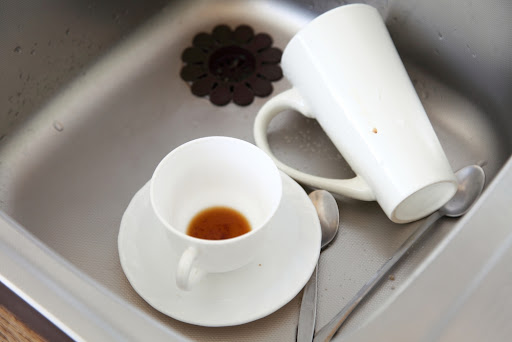
Can You Pour Coffee Grounds Down the Sink?
Can you pour coffee grounds down the sink? It’s a common question that many coffee lovers find themselves pondering after brewing their favorite morning cup of joe. While it might be tempting to simply wash those used coffee grounds down the sink drain, there are several important considerations to keep in mind before you decide to take this route.
We’ll delve into the potential consequences of pouring coffee grounds down the sink and explore more eco-friendly and drain-friendly alternatives. So, let’s dive in and find out whether it’s really a good idea to let those coffee grounds make their way into your kitchen sink drain.
The Coffee Grounds Conundrum: Can You Put Coffee Grounds in the Drain?
Coffee grounds might seem innocuous, but they can actually pose a serious threat to your kitchen sink and plumbing system. The primary concern here is the potential for clogs. Coffee grounds are granular and can clump together, creating a dense mass that can easily block your drain pipes. As these clumps accumulate, they can slow down water flow and eventually lead to stubborn clogs that require professional intervention to clear.
Coffee Filters and Their Role in Disposal
When considering the disposal of coffee grounds, it’s important not to overlook the role of coffee filters. Coffee filters, especially those made from paper, often accompany the grounds in the brewing process. The question arises: can you also dispose of these filters down the sink?
While paper filters may seem biodegradable, they can still contribute to clogs in your drain pipes. Over time, paper fibers can break down and combine with other debris, leading to potential blockages. Therefore, it’s advisable to avoid flushing paper coffee filters down the sink and instead opt for disposal methods that align with sustainability and drain health, such as composting or throwing them in the trash.
The Role of Grounds in Clogging
To understand why coffee grounds can be so problematic for your sink drains, it’s essential to know a bit about how clogs form. When coffee grounds are washed down the drain, they mix with grease, soap residue, and other debris that can get caught in your pipes. Over time, this mixture solidifies, creating a sticky and dense obstruction that restricts the smooth passage of water. This can result in slow drainage, unpleasant odors, clogged drains, and in some cases, complete blockages that render your sink unusable. You’ll need to schedule a drain cleaning in Houston to restore your plumbing.
Sink or Swim: The Impact on Your Plumbing System
The potential harm of disposing coffee grounds down the sink extends beyond just clogs. Coffee grounds contain oils that can cling to the walls of your pipes, further contributing to the buildup of gunk. Additionally, over time, the accumulation of coffee grounds and other debris can create an environment that promotes the growth of bacteria and foul odors, making your sink area far from pleasant.
Eco-Friendly Alternatives for Coffee Ground Disposal
Now that we’ve established that pouring coffee grounds down the sink isn’t the best option, let’s explore some eco-friendly alternatives:
- Composting: Coffee grounds are rich in nutrients and can be an excellent addition to your compost bin. They add organic matter and help improve the overall quality of your compost. Just ensure you mix them well with other compost materials to maintain a balanced mix.
- Garbage Disposal: While putting large amounts of coffee grounds down the garbage disposal isn’t recommended, occasional small amounts can be acceptable. Make sure to run cold water and the disposal while doing so to help prevent clogs.
- Trash Bin: One of the simplest ways to dispose of coffee grounds is to toss them into your trash bin. Consider using an airtight container to prevent odors and seal in the moisture.
- Garden Mulch: Coffee grounds can serve as an effective garden mulch, enriching the soil and deterring pests. However, use them in moderation and mix them with other organic materials to avoid clumping.
- Beauty and Cleaning Products: Coffee grounds can find a second life in beauty routines and household cleaning. They can be used as exfoliants, odor absorbers, and even as a gentle abrasive for scrubbing surfaces.
Grounds for Thought
So, can you pour coffee grounds down the sink? The answer becomes clear when you consider the potential consequences: clogs, plumbing damage, environmental harm, and more. Instead, opt for eco-friendly ways to put those used coffee grounds to good use. Composting, trash disposal, and repurposing in beauty and cleaning routines are just a few of the better options. By making a conscious choice to dispose of coffee beans responsibly, you’ll not only protect your plumbing but also contribute to a healthier environment.
If you’ve regularly been dumping coffee grounds in the sink and are now seeing the repercussions, don’t worry. Aberle offers affordable plumbing repair in Houston, and we can have your plumbing up and running again in no time. Contact us today to schedule an appointment!
